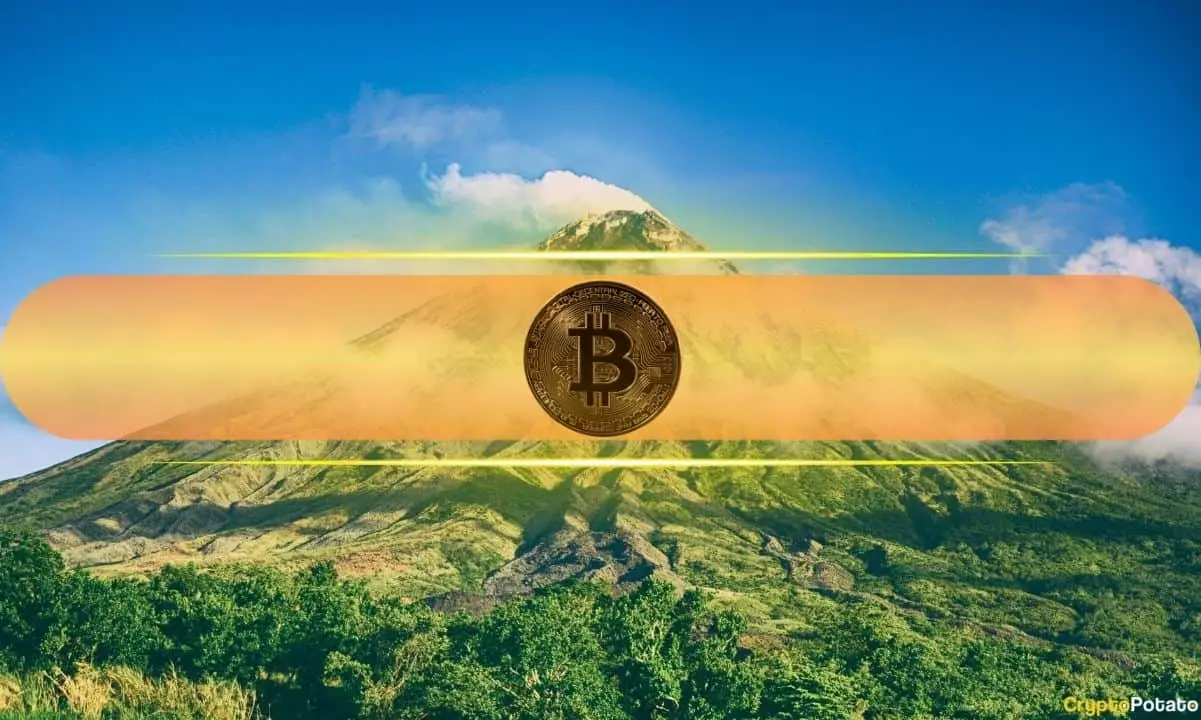The economic landscape of El Salvador has recently taken a significant turn with the announcement of an agreement between the nation and the International Monetary Fund (IMF) regarding the review of the 40-month Extended Fund Facility (EFF) arrangement. The optimism from IMF officials regarding the country’s economic reforms raises crucial questions about the long-term viability of these measures, particularly in light of El Salvador’s controversial Bitcoin policy. Beneath this veneer of progress lies a complex web of fiscal tightening, structural reforms, and an ongoing commitment to cryptocurrency that may create more problems than solutions.
IMF Backing: A Double-Edged Sword
On the surface, the support from the IMF appears to be a strong endorsement of President Nayib Bukele’s economic strategies, which supposedly have resulted in strong performance metrics concerning fiscal stability and economic governance. The IMF’s assessment speaks to a treasury that has “comfortably met” its targets, showcasing a country in what they deem a state of recovery. However, one must question the underlying impacts of such patronage. What does it mean for national sovereignty when a country’s economic policy is closely tethered to a global financial institution? It raises concerns that, while there may be immediate financial relief, the long-term implications may sever El Salvador’s economic independence.
Importantly, the IMF has mandated continued fiscal tightening as part of its EFF arrangement, which translates to cuts in public spending and wages. This approach may signal short-term stabilization but can lead to long-term societal repercussions. Is it sustainable to squeeze public services to appease international creditors, while the people of El Salvador bear the brunt of these decisions? The social fabric that weaves together any nation can fray when economic morales overlook the well-being of citizens.
The Bitcoin Dilemma: Innovation or Instability?
Perhaps the most contentious element of El Salvador’s economic policy is its unabashed embrace of Bitcoin. While many observers initially viewed the government’s Bitcoin initiative as a bold move toward financial innovation, the reality has proven more complex. The IMF’s directive to halt further accumulations of Bitcoin by the government raises pressing questions about the efficacy and stability of a financial system that relies on a notoriously volatile asset. How can a nation achieve fiscal stability while being entangled in a realm known for rapid price fluctuations and regulatory uncertainty?
According to reports, El Salvador has continued to purchase Bitcoin at the rate of one coin per day, amassing thousands of BTC since the inception of its cryptocurrency policy. This strategy might appeal to the president’s vision of modernizing the economy but it begs the question: Is this reckless speculative behavior or a genuine attempt to innovate the nation’s economic framework? One cannot ignore the lessons from global financial crises; at times, the innovations that promise ease can swiftly morph into chaos, disproportionately affecting the vulnerable segments of society.
Fiscal Sustainability: The Balancing Act
The various measures instituted under the IMF agreement—such as budget cuts and restructured spending—are undoubtedly steps geared towards fiscal sustainability. However, they often appear to balance precariously against a backdrop of ongoing crises in public education, healthcare, and infrastructure. While the central bank’s plans to bolster reserves are noteworthy, merely patching holes in a sinking boat does not ensure its safe travel through stormy seas. There is a critical need for El Salvador to consistently reevaluate its priorities, striving for a balance between fiscal responsibility and the enhancement of the quality of life for its citizens.
Moreover, structural reforms must not only be about meeting specific benchmarks laid out by the IMF but should seek to empower local communities and stimulate homegrown economic development. Without a committed focus on generating local jobs and bolstering domestic industries, the risks of international dependence may persist, leading to stagnation rather than progress.
Investor Confidence: A Fragile Promise
Lastly, the notion of maintaining “investor confidence” as a barometer for progress does little to benefit the average Salvadoran citizen. Investor confidence cannot be divorced from a populace that is rightly skeptical of its economic future. The allure of foreign investments may lead stakeholders to overlook the human cost of economic decisions. In striving to attract external investors, El Salvador risks creating a disconnect between financial gains and socio-economic realities, leading to an economy that benefits a select few while leaving others behind. The strategy may fortify the upper echelons of society but neglect those most in need of equitable growth.
In navigating the turbulent waters of economic reform, El Salvador stands at a crossroads. The path chosen today will define not only the nation’s fiscal health but also its social fabric for generations to come. As the government continues to advance its pro-IMF narrative, one must remain vigilant, ever critical of both current policies and their unforeseen consequences for the people’s future.

